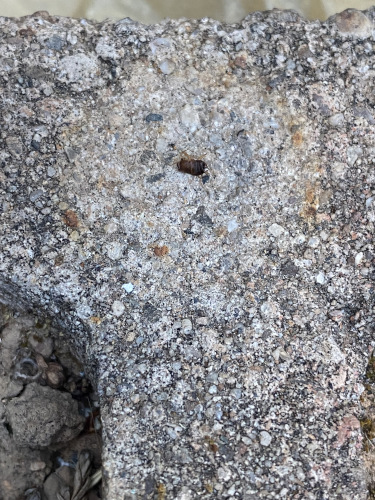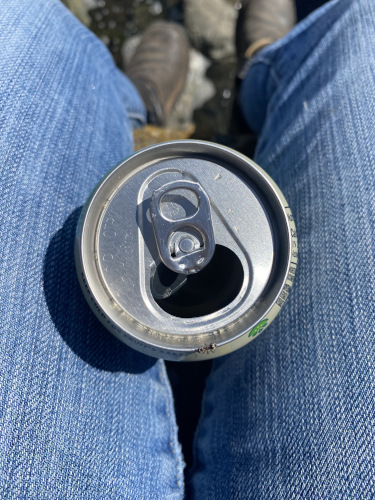
A tiny ant questing along the rim of a beverage can held between two bluejeans-clad legs, with clear bubbles in the tiny trough between the ant and the can’s mouth
In this frolic, as began in the latter part of “Lion in the Garden,” I continue to adventure solo.
He felt a mixture of wonder and pride. Wonder at the impossible grandeur and size of it all, and pride that this was his job, these were his people, and this was what he had always wanted to do. He felt a burning desire to share it all. But Katherine was not there.
—Alan Titchmarsh, Mr. MacGregor
I know you’re there (here?), and I’m glad, because this is still for you as well as for me, but these days you feel to me more like a quiet, peaceful presence peeking over my shoulder than like an active companion.
When she looked at him sleeping she remembered that he had been dead for months now and that in order to bring him back she had given up everything she had known in the world. Anders who she had worked with every day, Anders who she knew very well and not at all, was once again alive. He slept as if he had stayed awake the entire time he had been gone and there were moments she wondered if he were dead again but she wouldn’t stop the boat to see.
—Ann Patchett, State of Wonder
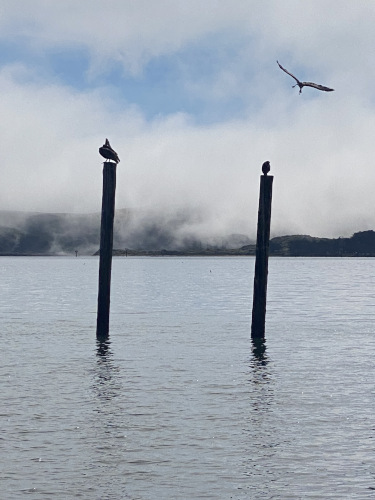
A secret is anathema to believing love is true, a kernel of promise that if the past is exposed, love will abandon her.
What a terrible predicament: to not know if love is conditional and yet to understand that the only way to find out is to risk losing it. I don’t know where everyone who takes that risk finds their faith, but I know where I have found it: first on the page, where I test those early words, groping for a way to say what I have tried to hide and hide from. Then, in the freedom I have found by being seen. Not by the reader, but by my own higher power, by the self that is capable of holding the most pitiful part of my past and loving her clean. . . .
It is true that there is a kind of social power in the pageantry of uncaring. It renders one less vulnerable to others. That protection can exact a steep price. I have since come to understand much greater powers.
—Melissa Febos, Body Work

There is nothing like the ocean for grieving or the desert for windswept peace.
“But you love everything about your life,” I said. “You’re more alive than anybody I . . . .” It was more than I could do, I couldn’t sit there calmly discussing her obliteration. I said, “If you were my age, maybe I could stand it.”
For a good while she said nothing. When I could look at her again she smiled coaxingly, inviting me to join her on that plateau of impossible tranquillity she had somehow reached. “Isn’t it complicated to be human, though?” she said. “Animals seem to give up their lives so naturally. Even when it’s violent it seems natural. They mature, and reproduce themselves, and a lot of the young are taken but a few survive, and the phylum is safe so the old ones can die in the stream like salmon, or get pulled down by wolves like old caribou, and it’s right, it’s what they expect and what nature needs.”
—Wallace Stegner, All the Little Live Things
In fact, ocean and desert are two kinds of the same thing.
You have been woven into the tapestry so deeply you can no longer clearly feel your skin as a boundary. Instead, it is diaphanous as the clouds themselves. You are spun through with spores and wind and the stream’s stone-articulated mantra.
—Sophie Strand, “The Body Is an Ecodelic”
Everything changes, of course, but often only via greater forces than our individual wills, and on longer and stranger timelines.
The sky grows dark, and the waves rise and crash.
- HELLO!
- . . . HELLO!
- . . . HELLO!
—Sophie Blackall, Hello Lighthouse
The puzzle now comes together less in a linear way than in bubbling patterns sloshing and winking mischievously in and out of existence, attesting to something deeper.

A tiny ant questing along the rim of a beverage can held between two bluejeans-clad legs, with clear bubbles in the tiny trough between the ant and the can’s mouth
It was the same feeling I’d known as a girl, the same I’d known in love, the same I’d felt in response to so many other songs. As I drove down the night highway, my heart surged and surged. I was, of course, on the brink of writing something that scared me.
—Melissa Febos, Body Work
I don’t know how these pieces fit; I just know they do. Perhaps you do, too.
You are part of the glittering sea, and part of the luscious, well-nourished plants, you are wedded to the sun, you are immersed in timelessness, only the present counts, and from the present you extract all the essences which can nourish the senses, and so the nerves are still, the mind is quiet, the nights are lullabies, the days are like gentle ovens in which infinitely wise sculptor’s hands re-form the lost contours, the lost sensations of the body . . . . As you swim, you are washed of all the excrescences of so-called civilization, which includes the incapacity to be happy under any circumstances.
—Anaïs Nin, The Diary of Anaïs Nin, Volume 5
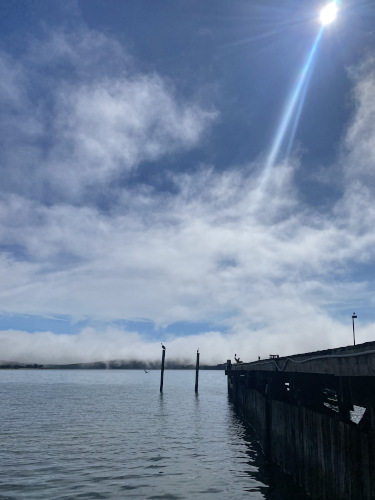
There are other languages being spoken by wind, water, and wings.
—Terry Tempest Williams, Refuge: An Unnatural History of Family and Place
So come, if you wish, and follow me where I don’t know where I’m going.
Me: I dreamed that I’m playing Jesus in some kind of performance and then realize I kind of am Jesus and then tell someone that I’m kind of Jesus and then realize how that sounds and then explain that we’re all a little bit Jesus. So I think I’ll wear my hair down for work today.
Facet 44: Jesus, that’s terrific! We are all a little bit Jesus, kind of a lot, actually. But yeah, how it sound to Christians—blasphemy! . . .
Me: Oh, my worry in the dream isn’t about how it sounds to Christians—it’s about sounding like a kook with delusions of grandeur, thinking everyone should bow down and listen to me. Like wait, no, that’s not what I meant!
Facet: Which is no doubt why they put that poor man up on a cross. Talk about delusions of grandeur, imagine that! “Wait, no, that’s not what I meant!”
—A text conversation (shared with permission, as are all words from friends)
Here’s our entrance this time:
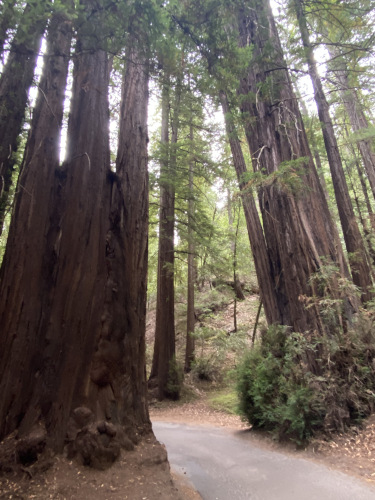
Redwoods forming the flanking columns of a portal, through which passes an asphalt path
Something is waiting in that cottage—maybe serenity, maybe sanctuary.
—Wallace Stegner, All the Little Live Things
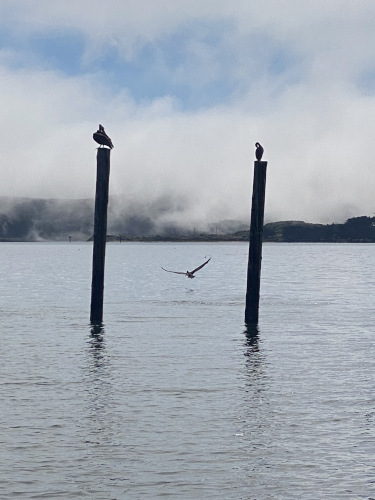
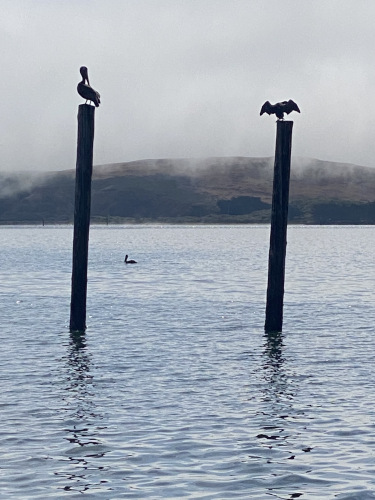
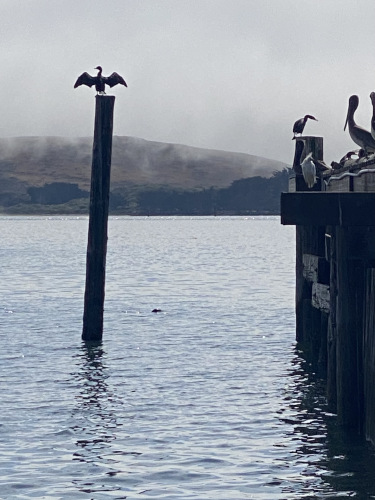
There they go! I must hasten after them, for I am their leader.
—My dad, parroting a paraphrase of a quote commonly attributed to Alexandre Auguste Ledru-Rollin
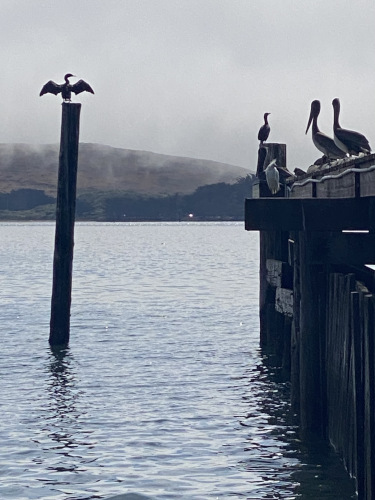
The scent of grasses around him grew fainter in the cool air; their fragrance had changed now. It was some other perfume; a reminder of some other place. The scent of home.
He rose to his feet and dusted off his jeans, then strode over the grassy tussocks of the riverbank and up the lane towards the town.
—Alan Titchmarsh, Mr. MacGregor
I emerge from the portal in the mood to shop for the bookshop, so I start with a library book sale.
While browsing at the foyer shelves, I ask the security guard, “Does anything interesting ever happen?”
“Oh yeah, sometimes.”
“I bet those are some stories.”
“Yep.”
“What do you do when nothing interesting is happening?”
“A lot of thinking.”
“Are you solving the world’s problems?” I’m smiling.
That is—or isn’t—the question to ask. He launches into a long diatribe about how crazy the world is, concluding with, “I can’t even begin to solve the world’s problems. I’m just trying to solve a few of my own.”
“That’s probably good enough.”
Western cultures believe we must be alive for a purpose, to work, to make money. Some indigenous cultures believe we’re alive just as nature is alive; to be here, to be beautiful and strange. We don’t need to achieve anything to be valid in our humanness.
—Melanie Lau

I try to see them one at a time. I mean every encounter here to be more than superficial, to be a real exchange of lives, and this is more easily accomplished one to one than in a group. But the continuity is solitude. Without long periods here alone, especially in winter when visits are rare, I would have nothing to give, and would be less open to the gifts offered me.
—May Sarton, The House by the Sea
At a volunteer-run thrift shop benefiting a hospice, a RELAX sign draws my attention to the fact that I’m barreling around like a buzzbutt as an outlet for panicky surges of energy that have nowhere else to go. A calmer part of myself sits back and keeps an eye on them, while letting them be.
The echo of the foolish words lingers on the air, is brushed away, dies forgotten, the air closes behind it.
—Rose Macaulay, Personal Pleasures: Essays on Enjoying Life

The people were stripped of their animistic spirituality and encouraged to see the world as inert matter that could be manipulated and used but could not and would not speak back. This is part of the foundation of the profoud alienation of capitalism. We are encouraged to see ourselves as alone in the world. We are the only subjects, the only actors, the only ones who can speak. And so if we want to know about the world, we can’t speak to the world directly. We have to talk to another human, one who “knows.”
—Clementine Morrigan, “Regarde l'Objet: A Materialist Theory of Re-enchantment”
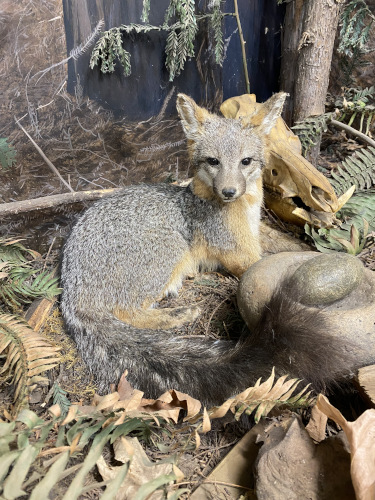
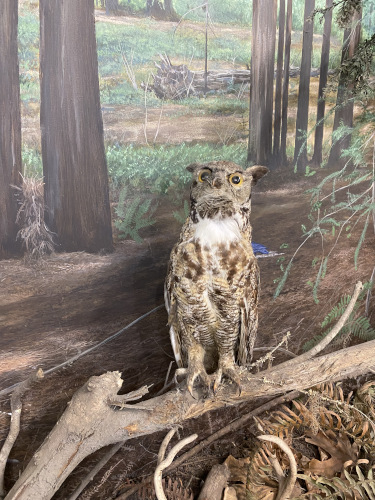
She didn’t want to evade it, she wanted to come to terms with it, and she would do that better alone.
—Wallace Stegner, All the Little Live Things
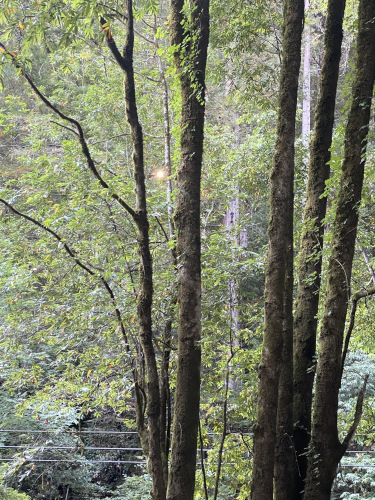
We enter solitude, in which also we lose loneliness. . . .
True solitude is found in the wild places, where one is without human obligation.
One’s inner voices become audible. One feels the attraction of one’s most intimate sources.
In consequence, one responds more clearly to other lives. The more coherent one becomes within oneself as a creature, the more fully one enters into the communion of all creatures.
—Wendell Berry, What Are People For?
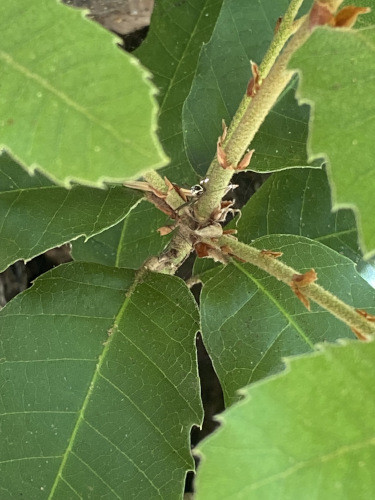
Perhaps my greatest fear is retreating so far into solitude that I am not longer able to handle human interaction. For the time being the demands of family life and teaching (internationally) keep me well clear of that point.
—Imelda Almqvist, “Solitude Diary from a Forest Witch”

Sustained aloneness brings you to a tipping point where the pendulum of life returns you to others.
—Stephen Batchelor
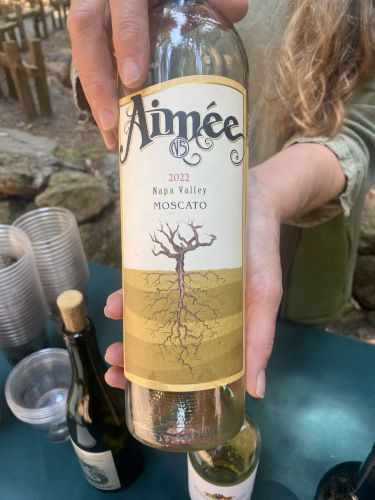
In all the running around, I cut my thumb on a mysterious glass canister found on a prior thrift-shopping day and broken in the chaos of my car’s passenger-side floor, a holding place for things in transit. The broken thing has been riding around for months, because I’ve been unsure of what to do with it: take it home, or store it with other magical someday-things in a nook of my grandparents’ old dairy barn. I don’t know if it has a place at the Tenterraces, but its potential seems too vibrant to relegate it to waiting out the years until I settle somewhere someday for good. It had originally come into my hands, lid taped shut, containing milkweed fluff, a reddish rock, and a small snakeskin.
. . . Although everything we love—people, places, possessions—can and likely will eventually be taken from us, the radiant vestiges those loves leave in the soul are permanently ours, and this is the only permanence we’ll ever know.
—Maria Popova, “Patti Smith on Time, Transformation, and How the Radiance of Love Redeems the Rupture of Loss”
As a teen, I had raised monarch caterpillars to butterflies, conveying them to jars with holes punched in the lids and supplying them with milkweed plucked from the verge of the gravel road a quarter mile above our house, until they formed cocoons, hatched in the night, and flew away the next day.
Smith’s husband, Fred, believed that when such beloved possessions disappear, they enter “the Valley of Lost Things.” When he was a child, his favorite toy—a red plastic cowboy he had named Reddy—suffered a similar fate after Fred’s mother, dusting the bookcase, inadvertently knocked Reddy into domestic neverland. But he miraculously reappeared some years later, emerging from the floor when boards had to be replaced.
—Maria Popova, “Patti Smith on Time, Transformation, and How the Radiance of Love Redeems the Rupture of Loss”
I interpret the cut as a message that it’s time to plant the seeds—or at least some of them.
Some things are called back from the Valley. I believe Reddy called out to Fred. I believe Fred heard. I believe in their mutual jubilance.
—Patti Smith, Just Kids
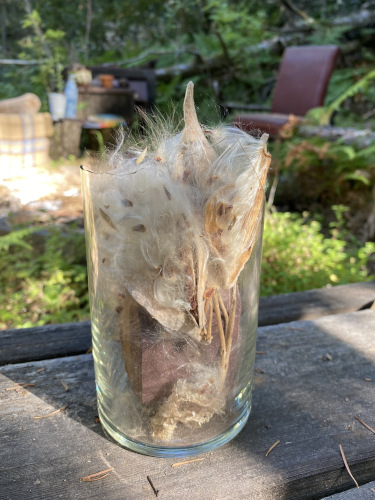
It could have been their living room, or on the beach, out in the middle of the forest—wherever they danced, they felt as if they were in a magical ballroom, glowing with silver and gold, created for them alone.
—Steve Henderson, @SteveHendersonFineArt@mastodon.social, from a post in July 2024
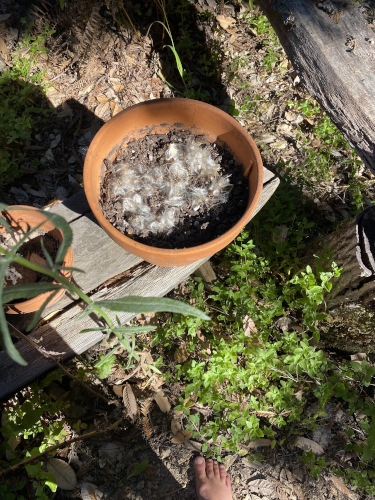
Do our lost possessions mourn us? Do electric sheep dream of Roy Batty? Will my coat, riddled with holes, remember the rich hours of our companionship? Asleep on buses from Vienna to Prague, nights at the opera, walks by the sea, the grave of Swinburne in the Isle of Wight, the arcades of Paris, the caverns of Luray, the cafés of Buenos Aires. Human experience bound in its threads. How many poems bleeding from its ragged sleeves? I averted my eyes just for a moment, drawn by another coat that was warmer and softer, but that I did not love.
—Patti Smith, Just Kids
Milkweed does well in difficult conditions, after all, so the seeds might as well go into one of my dormant pots.
I said a prayer to the lime-dusted mountain, then was drawn to a small rectangular light some twenty feet away. It was a white stone. Actually more tablet than stone, the color of foolscap, as if waiting for another commandment to be etched on its polished surface. I walked over and without hesitation picked it up and put it in my coat pocket as if it were written to do so.
I had thought to bring the strength of the mountain to my little house. I felt an instantaneous affection for it and kept my hand in my pocket in order to touch it, a missal of stone. It was not until later at the airport, as a customs inspector confiscated it, that I realized I had not asked the mountain whether or not I could have it. Hubris, I mourned, sheer hubris. The inspector firmly explained it could be deemed a weapon. It’s a holy stone, I told him, and begged him not to toss it away, which he did without flinching. It bothered me deeply. I had taken a beautiful object, formed by nature, out of its habitat to be thrown into a sack of security rubble. . . .
I took the stone from the mountain and it was taken from me. A kind of moral balance, I well understood.
—Patti Smith, Just Kids
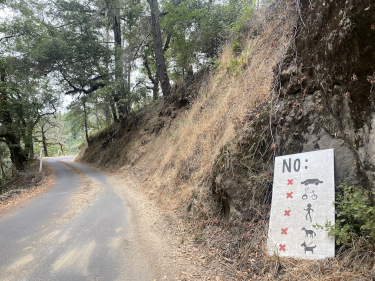
I got, somehow, the feeling of a bleak and tidy desolation . . . .
—Wallace Stegner, All the Little Live Things
(The Tenterraces’ conditions for my magical milkweed seeds turned out to include creatures who eat milkweed sprouts, but at least there are more seeds for someday: to be on the safe side, I had kept some back in the canister with the snakeskin and the rock, for which I made a place on my ancestor altar.)
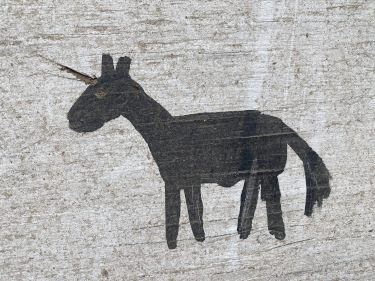
If your wounds
are still open
trust they are doors
to an answer
and walk through.
—Andrea Gibson, “In Praise of Not Knowing”
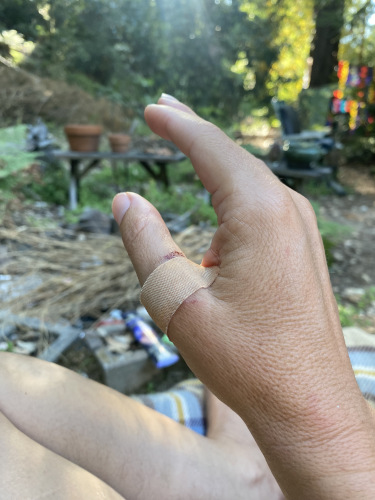
Marina bent over to look at the carved trinkets that a group of natives were selling off a blanket. She picked up a bracelet that could have been smooth painted beads or red seeds with holes drilled through the centers. She let the woman on the blanket tie it to her wrist with a complex and permanent set of knots and then bite off the ends, her lips somehow never touching skin.
—Ann Patchett, State of Wonder
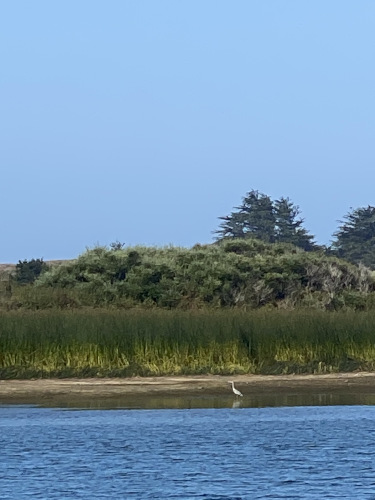
One of the children, a narrow-chested boy of nine or ten, looked through the menagerie of tiny carved animals that were spread out in front of him and picked out a white heron that was two inches high, a tiny fish caught in the needle of its beak, and he handed it to her. Marina had meant to refuse it, but once she held it up she thought it was in fact very fine, better than anything else she had seen, and so she agreed to buy the heron and the bracelet for a handful of bills she thought worked out to be about three dollars U.S.
—Ann Patchett, State of Wonder
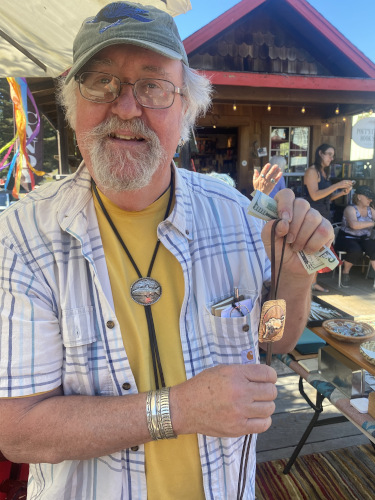
I’m not sure Steve *meant* to teach me this, but this is what I learned.
However it goes, you’re gonna get fucked over.
But you get fucked over regardless of whether you close your heart or open it.
You might as well open it.
And when you do, well, sometimes sullen tired old waitresses will make you french toast and bacon, while denying they ever did that, because they saw that you were decent, kind, and open-hearted.
—GeePawHill, @GeePawHill@mastodon.social, in a post in July 2024
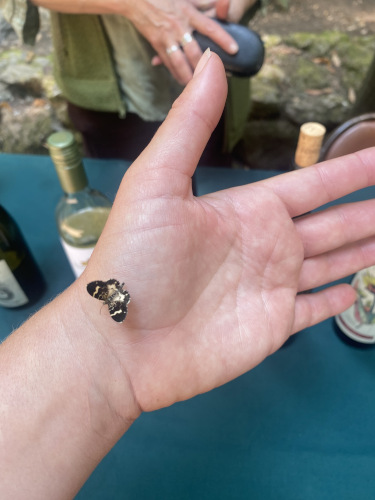
A raven calls, requesting walnuts, I believe, so I take some up to their log—only to discover that the walnuts from my morning delivery are still there! Raven, perched in a tree directly in front of me, at eye level, only wants to talk. We have a long conversation, seeing eye to eye.
She reminded me that I didn’t have to save everyone, and that my needs did matter, too. And she shared that she wanted to be able to help me, as I’d tried to help her and many other people. I realized that in not opening up to her, I was denying her access to a core part of myself that she’d been asking to know. That was when my tears started flowing. . . .
I felt so much closer to Madeline after sharing my biggest fears with her. She expressed to me that she understood how many demands were always being placed upon me, and that she’d never once resented me for not being able to give more. It was clear that she’d been wanting to be there for me on a deeper level for quite some time, and that my attempts to remain strong had only denied us both that potential connection.
—Devon Price, “Moving from ‘Who is Going to Save Me?’ to ‘What Can I Do?’”
The essence of the conversation is that I need not always deposit food and run; we can enjoy each other’s company, too.
Indigenous people the world over demonstrate that it is possible to not only live in harmony with your ecosystem, but to benefit it. The earth is intelligent. Species do not exist without our ecological niches. We are not a virus. We are animals that could still, possibly, pollinate and mulch and ferment and support biodiversity. What if we looked at our own bodies—our particular make up of molecules and mysticism—and asked where it needed to go? . . .
The mushrooms prickled me into being that late summer day, and then I slipped into the stream, feeling the water include my flavor, incorporate my funk and substance. Did the river need me? Did it need my body? My ecodelic awareness didn’t need to be woken up, so much as dreamed into. I need to enter rather than extract. Like the fungi melting into my bloodstream, I was metabolically looping into a bigger story. Who was being healed? It was hard to tell.
Where is your ecological niche? Where is the sore spot in your landscape that needs the shape of your body? The press of your tender foot? Where can you place yourself like an acupuncture needle in the mountain, the clear-cut forest, the web of relations that you, yourself, are woven from? Place me where I can melt into medicine. Place me on the tongue of the one who needs my taste.
—Sophie Strand, “The Body Is an Ecodelic”
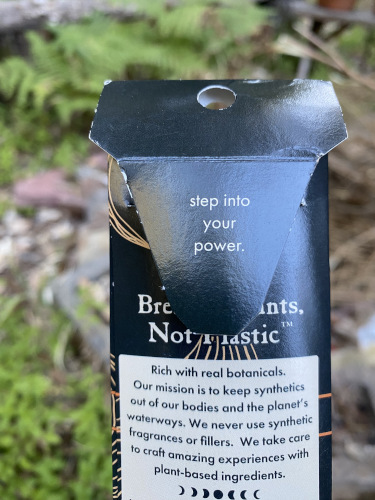
Then the raven makes a different sound, after which the mate flies in and perches there, too, as if the first had said, “Hey, come and chat with our human!”
. . . The overview effect is this overwhelming experience. A lot of astronauts come back changed by having seen how Earth actually is. It’s not a collection of all different places, it’s a unity. It’s like one animal. It really changes your life.
I even read that the people coming back from the Apollo program weren’t allowed to join the Army because they were afraid the astronauts would be “soft”—after this trip, it’s ridiculous to fight people because borders are just man-made.
. . . I first came into the darkness because I wanted to see the stars. But living in Amsterdam, that was so hard to find. And I started to dig more into light pollution and saw what it actually does to animals, to people, how it makes us more depressed, more obese, how many insects it kills.
I also noticed that when you’re in darkness, you experience your surroundings so differently. Not being able to really see your own boundaries, you feel maybe what the overview effect can also give you. You feel like you transcend yourself a little bit.
—Marjolijn van Heemstra, in an interview with Steve Paulson: “Finding Solace in the Vastness of Space”
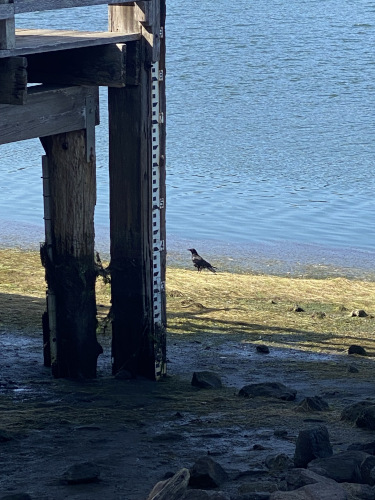
After the conversation, I nonetheless leave a few more walnuts and then bring the extra walnuts back down, dividing them as offerings to the four directions. I almost step on a lizard, thinking they’re a leaf, but they sense the danger in time.
I talk with the lizards here, sunning themselves on the porch. I always say, “OH hi Lizzie! Don’t mean to disturb you, you go on and enjoy. You don’t need to do those push-ups for me, I’m already impressed.”
—Facet 44
I read, shower, strip the leaves off of some old Scotch broom to make a pile for the compost toilet.
My stomach feels uneasy, because all the nourishment I’ve taken for the day is expired almond milk and thawed old zucchini bread. (I hate it when things go to waste.) I must need a slowdown. I eat some vegetable soup and ramen so should feel reasonably soothed by morning.
A jet came over from the south, already letting down for San Francisco, and blotted everything out. Then, as it faded northward, the little noises came back. Among the oak leaves, dry and horny as the cast shells of little crabs, a lizard made a sudden stir.
—Wallace Stegner, All the Little Live Things
In my before-bed chat with the ravens, they seem activated by something. When I go out, I don’t see anything unusual.
I can’t see as much from down here as you see from up there, I remind them.
. . . Oh, they reply, and fall silent.
I guess it isn’t that important.
And in the deep night
- I felt my mother rise,
And stare down upon me
- With love in her eyes.
I saw my mother sitting
- On the one good chair,
A light falling on her
- From I couldn’t tell where,
Looking nineteen,
- And not a day older,
And the harp with a woman’s head
- Leaned against her shoulder.
Her thin fingers, moving
- In the thin, tall strings,
Were weav-weav-weaving
- Wonderful things.
Many bright threads,
- From where I couldn’t see,
Were running through the harp-strings
- Rapidly,
And gold threads whistling
- Through my mother’s hand.
I saw the web grow,
- And the pattern expand.
—Edna St. Vincent Millay, “The Ballad of the Harp-Weaver”
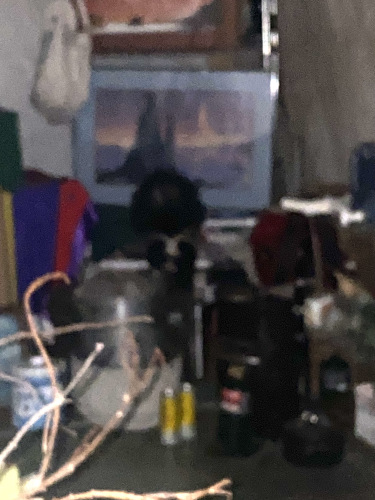
The thing is, it’s very easy for us to turn away from something that might hurt, right? And loving things does sometimes hurt. So what I wanted my students to know is that in my own life, even though it’s hard and sometimes very painful, the decision to love things allows me to have more joy, allows me to have a richer existence. And when you’re in the world and you’re in love with it, it’s a really great place to be.
So I tell them, “Please, have the courage to love.”
—Heather Swan, in an interview with Anne Strainchamps: “Ecologies of Love: Heather Swan’s Stories of Insects and the Web of Life”
I usually struggle to give way to wakefulness in the morning, as I enjoy my dreams—even the difficult ones—and this reality is so . . . unyielding. It takes time to adjust.
. . . Your feelings exist, and they have a real influence on you, and you are allowed to accept the reality of them and make decisions accordingly.
—Devon Price, “I’m Trans, but I Have a Genital Preference. What Should I Do?”
There is a grim joy in my melancholy. It can be a type of compassion—an understanding of the vastness of suffering—but it’s also what remains of my old grief and despair: a sense of having to be where I don’t want to be or endure what I don’t want to endure, a visceral NO. I can flow with it better than I used to. I’m closer to where and how I want to be.
She said to me, “Pain is a form of pleasure, don’t you know that?”
“You mean when it quits.”
“No, pain itself.”
“Only for sadists and masochists,” I said. “For thee and me, pleasure extends only to the near edge of the uncomfortable.”
Considering, she had already begun to shake her head. “But when it’s summer, don’t you like it to be real hot old summer, and when it’s winter don’t you like to freeze? Pain makes things valuable. . . .”
—Wallace Stegner, All the Little Live Things
Every night and many mornings, I offer an inner gift of some kind to my wise and kind inner gatekeeper, guides, and companions, with a request that “the doors and gates and paths of any who wish to do me or those I love any harm be closed” (as taught by dream teacher Robert Moss). When I learned that coyotes had taken Murph, a cat I loved, I cried out, What gives? Someone I love was killed!
The answer came: He went through pain, but he did not come to any harm.
I don’t quite understand it yet, but it rings true.
Might Murph have known on some level that his time had come? Was he ready, even if scared?
My dad suggested shooting the coyotes, but I feel a deep connection to them, too, ever since I stood eye-to-eye with one for a long moment, across an empty canal above my parents’ property. It’s a recurring theme of my life: loving both the aggressor and the violated—like when I was 13 and my beloved cat ate my beloved bird, or when my beloved father killed my beloved spiders and flickers and . . . .
I, too, am both aggressor and violated. I kill, or pay others to kill, for my nourishment, safety, entertainment, and comfort. Just now, I clapped a biting fly dead before they could land. And another. And another. I’ve lost count of the number today. Some of them continue to wriggle until I land a second or third blow.
We all have limitations on what we will withstand—until we have no choice. Then we are changed.
It is slowly dawning on me that my needs are just as legitimate as anyone’s, and that after the downfall of capitalism, I could still tell people that I need time to be alone.
—Devon Price, “Moving from ‘Who is Going to Save Me?’ to ‘What Can I Do?’”
Also I’m fortunate, as I’ve managed to keep or regain a channel to childlike wonder, so I’m ever open to bouncing back, given the slightest opportunity.
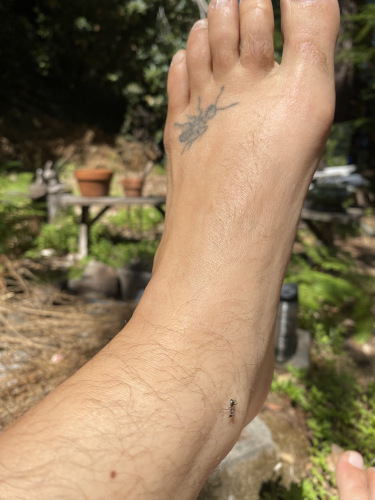
A human left foot with an ant tattoo near the toes and a live carpenter ant exploring the ankle, held up in full sunlight where the bandaged hand was lifted before
. . . My rightness wiped out the curiosity, wonder, and awe that was the pillar of my joy as a child. But as most of us do, I lived with an attachment to being right for years.
When I woke up from the surgery that diagnosed me with cancer, I felt instantly returned to The Land of I Don’t Know. My rightness, my knowing, fell off of me like a heavy burdensome coat.
—Andrea Gibson, “In Praise Of Not Knowing”
It was because I stayed in for a day to mourn Murph that I caught a neighbor cutting my friend’s trees. Even though the tension of confrontation made my stomach hurt, and it took me a long time to sleep that night, I felt fantastic to have done something in service to my green loved ones, who do so much for me—and Murph now lives in the lap of my heart, blissfully curled up there, occasionally looking up to blink beatifically at what’s going on around me. His presence is helping me become more Murphlike: sweetly preternaturally Zen. I have a long way to go, but that spirit did help me face the neighbor.
She sang as she worked,
- And the harp-strings spoke;
Her voice never faltered,
- And the thread never broke.
- And when I awoke,—
There sat my mother
- With the harp against her shoulder
Looking nineteen
- And not a day older,
A smile about her lips,
- And a light about her head,
And her hands in the harp-strings
- Frozen dead.
And piled up beside her
- And toppling to the skies,
Were the clothes of a king’s son,
- Just my size.
—Edna St. Vincent Millay, “The Ballad of the Harp-Weaver”
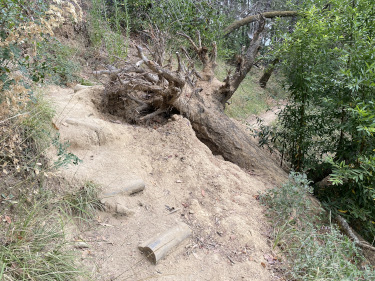
I will be richer all my life for this sorrow.
—Wallace Stegner, All the Little Live Things
There is a greater vastness of joy, which can be harder to tap into at times, from the heaviness, but it’s there.
She was floating now, caught in a current that pulled her ahead and to her surprise she did not mind it. She was content to float, to be pulled under or tossed up. She would give herself over to the force of the river if the river took her . . . .
—Ann Patchett, State of Wonder
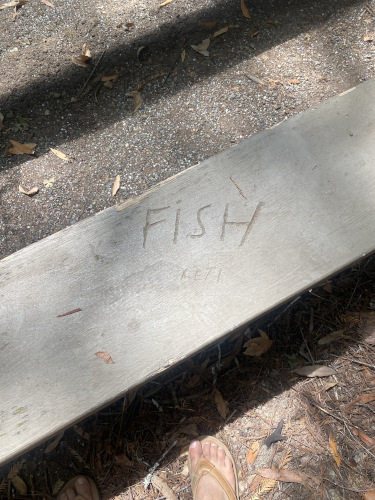
He bore her away in his arms,
The handsomest young man there,
And his neck and his breast and his arms
Were drowned in her long dim hair.
—W. B. Yeats, “The Host of the Air”
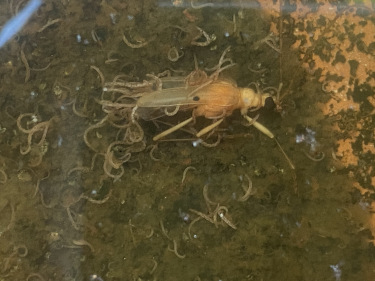
When I see ring-billed gulls picking on the flesh of decaying carp, I am less afraid of death. We are no more and no less than the life that surrounds us.
—Terry Tempest Williams, Refuge: An Unnatural History of Family and Place

What if sickness is not a separation from the body? What if health is not quite so easy to see? What if physical pain leaves us no choice but to return to our bodies, the pinpricks and lightning of illness stitching us back into a physical presence our society has taught us to ignore?
. . . Is there healing beyond the human? Beyond the hope for a cure or a happy ending? Is there something wilder and more symbiotic beyond narrow ideas of well-being?
—From the cover copy for The Body Is a Doorway: A Memoir, by Sophie Strand

For colonized people, the world has already ended multiple times. But instead of giving up, their communities have joined together, again and again, to preserve the old teachings, create new traditions, shelter other displaced people, cook food, raise babies, sew clothing, make regalia, and build supports that no government would ever just “give” them.
They do these things not because they are superior to Western colonizers on some inherent level, but because they understand where their power comes from. It comes not from a weapon, their personal resolve, a police officer, or the government. It comes from the collective, built with each individual effort and kindness.
. . . If we follow their lead then our frantic, nervous questions of “Who is going to save me?” can drift into the background, allowing “What can I do for others?” to come to the fore and direct us where we’re meant to be. . . .
No matter how powerless you feel right now, a new world is forming, and it needs you. With your help, it can be far better than anything you’ve ever lived through before.
Recently, activist Ashtin Berry (also known as TheCollectress) posed a question to her white American followers: what would they do if a civil war broke out, or society collapsed and they could not leave?
“Overwhelmingly, people stated that they would simply die,” Ashtin writes. In a survey of hundreds of people, choosing to lay down and accept death was easily the most popular response. Respondents often cited pacifism, an inability to make a difference, and the belief that life was not worth fighting for as their reasons for giving up.
“Most BIPOC would not be alive if their ancestors had these type of thoughts,” Ashtin reflects. By resigning themselves to certain doom, the white people she surveyed displayed what she calls “a clear lack of historical and social awareness of how their acceptance of death . . . condemns others who want to live.”
Ashtin’s writing lit up my social media feed. Many commenters shared that their suicide ideation got worse with every piece of upsetting political news they consumed, and so they could not imagine carrying on if matters got “worse.” Several white people suggested that because they were the descendants of enslavers and colonizers, they did not deserve to live. A few close friends reached out to me about the post in private, speaking about their ongoing search for purpose in life, or confessing that despite their best attempts they still couldn’t see any reason to keep going.
Suicide’s main draw is the escape that it offers. We long for death when we cannot find a path from our suffering, or when we believe, as Aaron Bushnell did, that we are so bound up within evil systems that the only way to cease doing harm is to cease being. Death is an answer that ends all questions — about what a better life would look like, how to make amends, or how our circumstances might ever change. . . .
A white disabled woman reached out to Devon, outraged at this suggestion. She said was Autistic and physically disabled, with a chronic health condition that regularly flared up; it wasn’t fair for Devon to tell her to help others when she could barely do anything herself! She was sick and weak, lonesome and depressed; she needed so much care she wasn’t getting, and there was nothing that she had to give. She was certain that she would die alone if there was ever a societal collapse.
“I’m sure you have a lot of experience and skills that are valuable,” Devon assured her. “With that many disabilities, I bet you’re an expert at navigating the healthcare system.”
The woman considered this. “Yes,” she told Devon, “I am really good at advocating with healthcare providers and making sense of the insurance system.”
“That is an important skill!” Devon told her. Lots of disabled people could benefit from her hard-won knowledge. And if the American healthcare industry collapsed, this woman’s perspective would be invaluable in constructing a system that was better thought-out and more just.
“I’ve never thought of myself as having a useful skill before,” the disabled woman told Devon. In that moment, she shifted from seeing herself as a completely powerless victim of ableism, to a potentially powerful agent of change.
“It really goes to show you just how helpless people have been conditioned to see themselves as being,” Devon told me, “And how much that prevents us from building any networks of care that could make us less reliant upon the state.”
When we think that we have nothing meaningful to give to others, we can’t imagine surviving in a changing world where old healthcare systems collapse and oppressive governments fall.
A view of ourselves as utterly powerless keeps us from appreciating that all the good in the world comes from regular people around us, too. It’s not the President or the hospital network that “gives” us the medicine and care that we need. It’s our neighbors who do that, and they will still exist and still contribute to our lives even if some terrible catastrophe were to occur. . . .
Though government authorities always feel the need to arm their cities against riots and “chaos” when big disasters happen, the reality is that a majority of people are motivated by what Solnit calls a human need to be needed. Rather than fleeing or harming one another, most humans run toward the danger in order to rescue people, recover supplies, and bring comfort. The community support that rises up in the wake of disaster is so robust that many survivors look back upon their moments in “hell” as the happiest days of their lives, Solnit reports. . . .
I used to think that voting and calling representatives were my only avenues for political participation, but now I see that with every choice I am not merely voting for a better world, I am creating it. When I fund a friend’s jaw surgery, when I look an unhoused person in the eyes and ask them how they are doing, when I slow my walking speed, when I share my knowledge, I am making decisions about how the future will be. I am not powerless. I am small, and vulnerable, but I always have something to give. . . .
The End of the World is a big, frightening abstraction. But if some terrible disaster (or glorious revolution) were to happen today, all I’d have to do tomorrow is make a few basic decisions. What would I eat? Where would I sleep? Who would I contact first?
At the end of the world there are still dirty clothes and rumbling bellies. Those pressing physical needs are the most immediate questions we will need to answer, not larger philosophical quandaries about what life is “for,” or what the ideal new political system should be. For those more essential questions, there will always be answers: canned food to gather, lakes to wash off in, stories to be traded across candlelight.
The future that we expect is just a fiction we tell ourselves, and it has never been guaranteed. And so, when some dramatic change comes, we can focus not on the loss of certainty, but on the practicalities: finding shelter, getting fed, and keeping the people around us as safe as we can. This is already what life is about—and we’re all more practiced in survival than we might think.
. . . In a societal collapse, I would never attend a meeting with university administrators again. Instead, I would spend a whole lot more time speaking with the parents of Autistic children and explaining accessibility needs to the small communities forming around me. I would still do the “work” I am best prepared for. I’d just be sharing my knowledge more directly and intimately, and not for a profit.
And there it is again, an important realization. I could be performing this work right now. I can liberate myself from my bullshit job and make my expertise more widely accessible to the people who genuinely need it most. Once again, preparing for a future world offers me lessons about how to live better in this one. When I consider the person I could be if I stopped following the rules of capitalism, all of a sudden I’m no longer afraid. . . .
We don’t need better health insurance. We need clinics anyone can enter at any time, with no documentation needed and no questions asked. We don’t need a lower interest rate; we need to stop making people pay for food. We don’t need a Black chief of the police, a better AI-operated drone, or a lesbian for President; we need no more cops, no more military, and no more Presidents. . . .
We have the answers. We get to decide what comes next. And we will continue knowing how to care for one another long after the world as we know it has gone.
—Devon Price, “Moving from ‘Who is Going to Save Me?’ to ‘What Can I Do?’”

